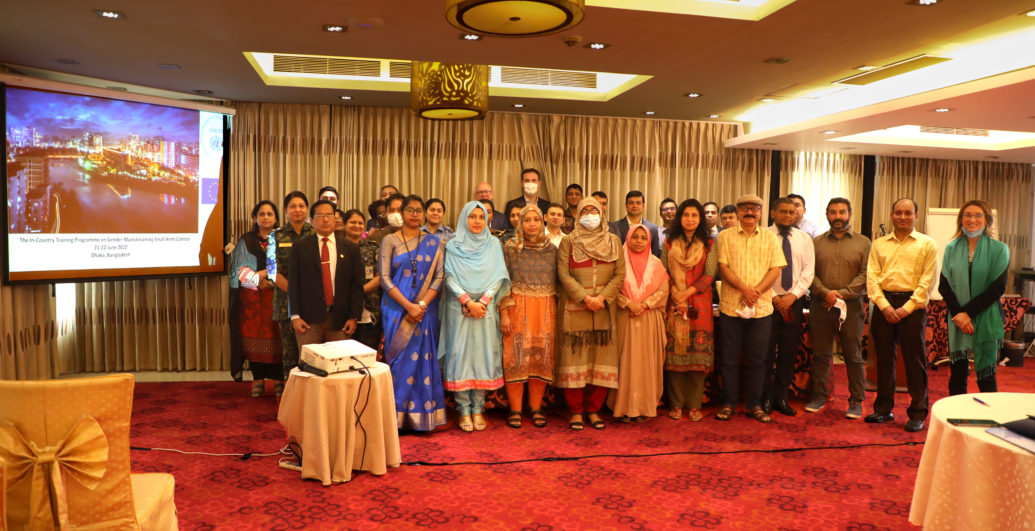Training on gender mainstreaming small arms control in Dhaka

Dhaka, Bangladesh, 23 June 2022 – The United Nations Regional Centre for Peace and Disarmament in Asia and Pacific (UNRCPD) organized the in-country training programme (ICTP) on gender mainstreaming small arms control from 21 to 23 May in Dhaka, Bangladesh, with support from the Ministry of Foreign Affairs of Bangladesh.
The training was composed of two parts. The first two days focused on gender mainstreaming small arms control, and the third day concluded with a session on National Coordination Mechanism (NCM) and National Action Plan (NAP) on Small Arms and Light Weapons (SALW). The training targeted thirty-tree participants (17 women, 15 men) consisting of government officials, security and defense forces, civil society organizations, and key UN agencies, such as UN Women, UNODC, the UN Resident Coordinator Office.
Through thematic presentations by the experts and national stakeholders, practical exercises and panel discussions, participants gained knowledge and exchanged on gender analysis and data collection in small arms control context, the multiplier effect of small arms on violence against women, enhanced gun control and license legislation, and gender equality and women’s participation in SALW control as an operational necessity.
The training strengthened the participants’ understanding of the areas of convergence between the UN Programme of Action and the Women, Peace and Security (WPS) agenda. In this regard, participants reviewed the current NAP on WPS to identify entry points for small arms control and harmonize the implementation of the two agendas.
The three-day training concluded with a MOSAIC-based exercise on gender-responsive NAP. The exercise culminated with the drafting of a model NAP matrix outlining operational objectives, targeted activities, and lead agency for the different functional areas of SALW control (policy and law, supply side control, demand reduction, victim assistance, crosscutting issues, and special programmes). The document will serve as a policy brief for future work in this area.
For further information, please contact Ms. Ida Scarpino, Regional Project Coordinator on Gender and SALW at UNRCPD: ida.scarpino@un.org.

